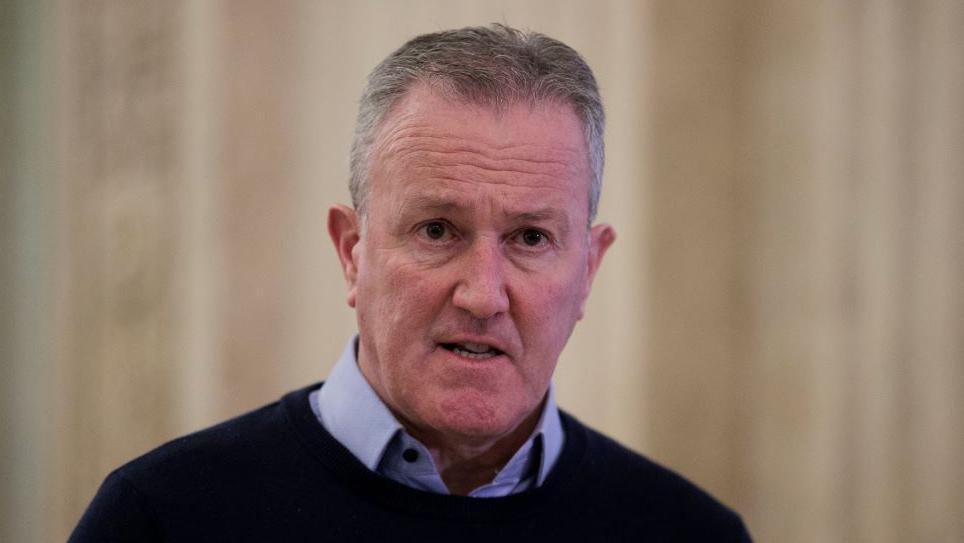Trump tariffs would be bad for NI economy, says Murphy

Economy Minister Conor Murphy has it is not yet clear how Mr Trump’s campaign pledges will translate into policy
- Published
The economy minister says that it would be bad for the Northern Ireland economy if Donald Trump follows through on rhetoric about imposing tariffs on all imports to the United States.
Trump has won the US Presidential election.
During his campaign, he proposed tariffs of up to 60% on goods made in China and of at least 10% on other imports.
"Anything which hinders our ability to trade with a very significant trading partner is not good news," Conor Murphy said.
"Businesses like certainty and if the Trump presidency brings uncertainty that isn’t good news for our companies who do business in the US."
However, he added that it is not yet clear how Trump’s campaign pledges will translate into policy.
Tariffs are effectively a tax on trade, applied to goods as they enter the country.
The charge is paid by the domestic company that imports the goods, not the foreign company that exports them.
However, the burden can ultimately fall on the exporting firm if it has to cut its prices or finds that it can no longer compete in that market.
They can be used by governments to protect domestic industries by making competing imports more expensive.
In 2022, Northern Ireland companies exported goods to the US with a value of £1.9bn.
That was the third biggest external market for goods behind GB (£11bn) and Ireland (£4.6bn).
The US is a particularly important market for machinery manufacturers in NI, including the cluster of businesses in Mid-Ulster.
It is also unclear if Trump will appoint a new US economic envoy to Northern Ireland to replace Joe Kennedy.
Analysis: Potential impact on Ireland
The impact of a Trump presidency is potentially much greater in the Republic of Ireland.
Around a third of Irish exports by value go to the United States, largely pharmaceuticals, which are manufactured by US companies.
Major US companies, such as Apple, have also organised themselves so that they pay a lot of their global taxes in Ireland.
An ‘America First’ Trump administration could try to use a combination of carrots and sticks to get them to pay more of that tax in the US.